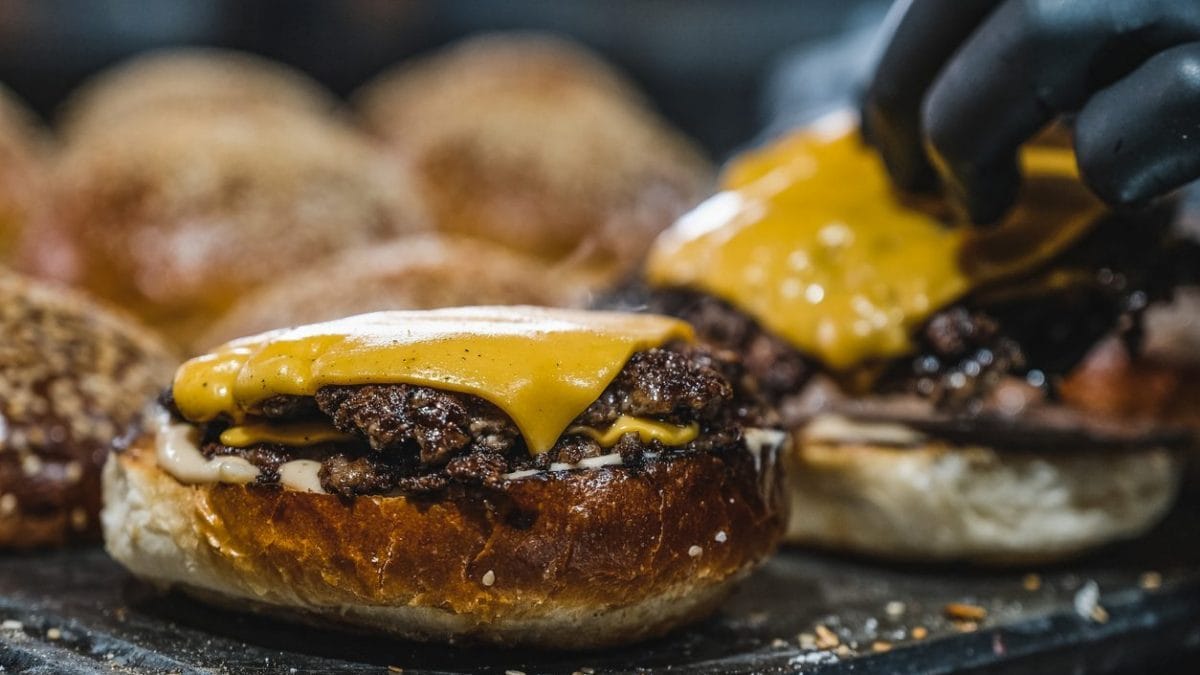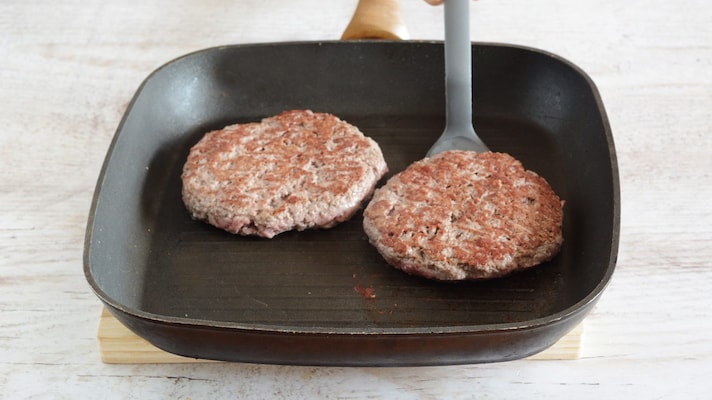
The eternal debate when we cook burgers at home or go out to enjoy a delicious sandwich: should a burger be eaten well done or rare? A dilemma that divides lovers of this timeless American dish, between those who prefer the safety of thorough cooking and those who instead appreciate the flavor and tenderness of pink meat. Let's start by saying that cooking a burger thoroughly is the recommended choice to avoid bacterial contamination. Ground meat, in fact, can harbor bacteria that can cause unpleasant food poisoning. In reality, however, the question is not so simple: the choice of cooking is subjective. It depends on your taste preferences but above all it depends on the butcher (or restaurant) from which you buy the burger. Let's look together at all the details of cooking this iconic meat medallion with two exceptional experts: Roberto Liberati and Ornella Buzzone.
Hamburger: Rare or Well-Done?
Those who choose a well-done burger usually do so for fear of contamination; those who prefer a rare burger appreciate its juicier texture and more intense flavor. Rare cooking enhances the tenderness of the meat. There's a third option: medium. The meat remains pink in the center, but reaches a safe internal temperature (at least 145°F/63°C). This is a compromise that satisfies those who want a tasty and safe burger.

For Roberto Liberati, a Roman butcher, "it's all a question of processing techniques. In most cases, the processing technique could be sloppy and this could lead to food contamination." Undercooked hamburgers are indeed risky, not because of the meat itself but because of any "imperfections" found during the processing. According to a study by the Experimental Zooprophylactic Institute of Veneto, "any meat, not just hamburgers, can be a health risk due to possible bacterial contamination that can find the ideal conditions to arise and affect people." The Venetian institute even suggests "cooking at a minimum of 167°F/75°C and for at least 6 minutes" to eliminate all bacteria. But does this apply to all types of meat? Yes and no, according to the researchers: "The problem is greater with hamburgers, which are made from ground meat and not a single cut. And keeping the meat in the refrigerator before preparing and cooking it also makes a positive difference." Liberati also emphasizes the issue of processing: "Cooking isn't as important as the safety of the meat. You need to choose the right butcher shop before choosing the right hamburger. This is because you need to see how they are made. All the problems with hamburgers are linked to the butcher shop that makes them. You can eat a hand-made hamburger raw. You can eat a hamburger that's been passed through a clean machine raw. If the machine isn't clean, if the butcher shop doesn't follow the instructions, a problem can arise if the hamburger isn't cooked properly."
The great Roman butcher, renowned both for the quality of his meat and for his 10-year macrobiotic practice, suggests cooking it in a hot pan, heating it thoroughly on both sides, and "only after browning it thoroughly, cover it with a lid, turn off the heat, and leave it there for 15 minutes until it's just the right color." For him, cooking is crucial "unless you're certain you're getting a natural, well-made product. Most burgers contain artificial preservatives that aren't beneficial, regardless of how you cook them."

We posed this question to a true expert about cooking: Ornella Buzzone. She jokes that over the years, "I've seen it all, cooked and raw, in every sense." The chef has met "people who have enjoyed overcooked meat and others who have been horrified by medium-rare meat. Perfect cooking is a symphony of flavors and textures that manifests when the heat penetrates evenly throughout the meat, sealing in the juices and creating an inviting, golden crust. I eat my meat rare, but not everyone likes it that way." The restaurant encourages all customers to eat their burgers medium rare with a "juicy center and golden crust" because, according to Buzzone, "this cooking method gives them softness and succulence. But we're still talking about burgers. It's important to remember that perfection varies from person to person. For my friend, it's well done, for me, rare. Medium rare should be the middle ground between those who eat overcooked and those who prefer it rare-rare." The restaurateur also tells us about possible technical problems caused by cooking them rare, "like a burger that's too cold in the center" or that falls apart if not done perfectly. Ornella Buzzone recommends grilling it or using a hot pan, cooking the medallion for four or five minutes per side, "but for perfect cooking, it's important to know the thickness of the meat and the cooking temperature, perhaps with the help of a thermometer."
Both experts advise cooking burgers thoroughly, but above all, choosing meat only from competent and conscientious butchers: quality is essential. Especially if you prefer your burgers rare, a completely acceptable choice, you need to go to reliable professionals and ensure the meat is handled and cooked safely to reduce the risk of bacterial contamination. If you're concerned about food safety, it's safest to opt for well-done burgers.
;Resize,width=767;)
